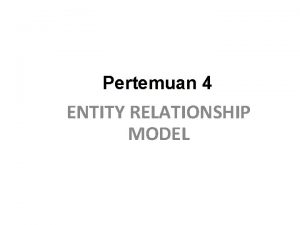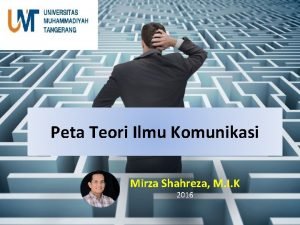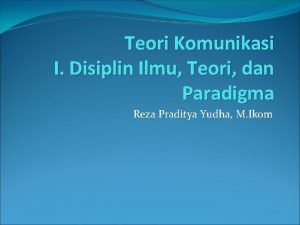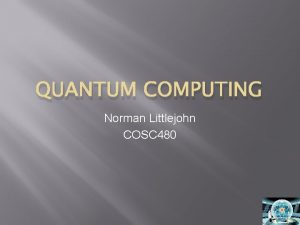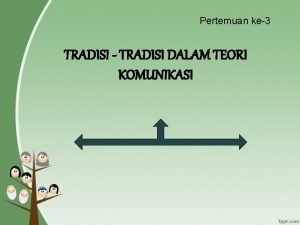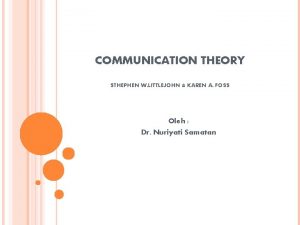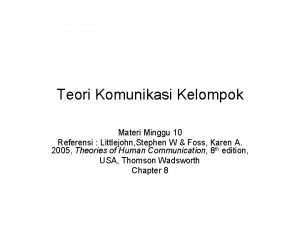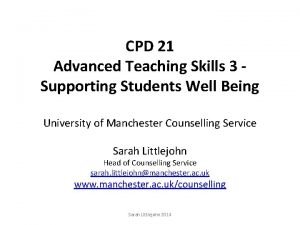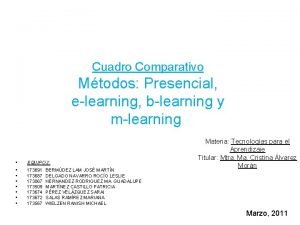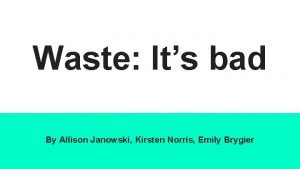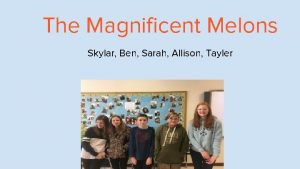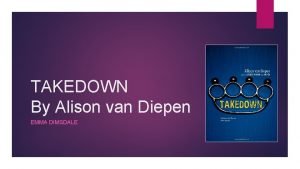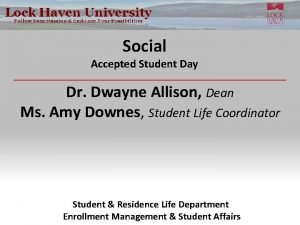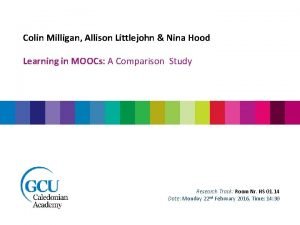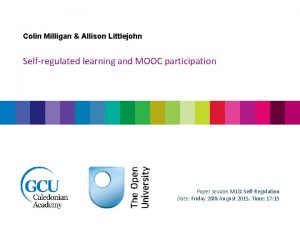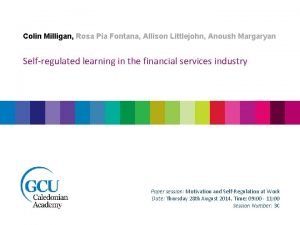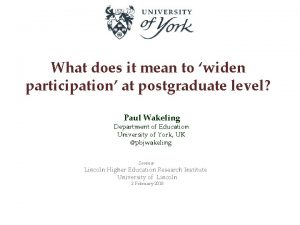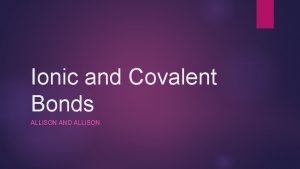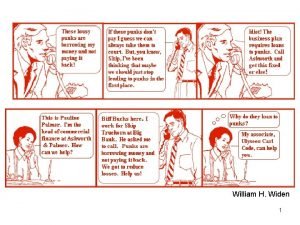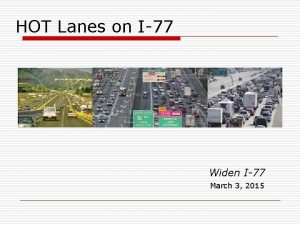Learning to Widen Participation Allison Littlejohn allisonl Academic














- Slides: 14

Learning to Widen Participation Allison Littlejohn @allisonl Academic Director, Learning & Teaching Centre Professor of Learning Technology Institute for Educational Technology The Open University, UK

formal intentional (planned) non-formal learning recognised unintentional (unplanned) unacknowledge d Eraut, M. (2000). Non‐formal learning and tacit knowledge in professional work. British Journal of Educational Psychology, 70(1), 113 -136.

Tynjälä, P. (2008). Perspectives into learning at the workplace. Educational Research Review, 3(2), 130 -154. Tynjälä, P. , & Gijbels, D. (2012). Changing world: Changing pedagogy. In Transitions and transformations in learning and education (pp. 205 -222). Springer.

The workplace operates as a site where learning is intertwined with work. Learning is individually & socially mediated through intentional and disruptive interposition. Eraut, M. (2000). Non‐formal learning and tacit knowledge in professional work. British Journal of Educational Psychology, 70(1), 113 -136. ç Harteis, C. , & Billett, S. (2008). The workplace as learning environment: Introduction. International Journal of Educational Research, 47(4), 209 -212. Fuller, A. , & Unwin, L. (2004). lntegrating organizational and personal development. Workplace learning in context, 126.

Scenario 4 How do Educators Learn Open Educational Practice? Erasmus+ Expl. OERer Theory: Self-regulated Learning (Zimmermann, 2000) Method: 1 Psychometric survey instrument (n=521) measured selfperceptions of learning & workplace autonomy 2 Semi structured interviews (n=30) Timescale: January – April 2015 http: //www. exploerer. gu. se/


Starting point: limited use of OER Resource use Resource evaluation Knowledge development

Type 1 Type 2 Type 3 Type 4 • General theoretical knowledge • Specific theoretical knowledge • Practical/experiential knowledge • Self-regulative knowledge Type 5 • Community based socio-cultural knowledge Type 6 • Workplace based socio-cultural knowledge

Factors Influencing Self-regulation learning value – value & fulfillment ascribed to learning on the job self-reflection - ability to evaluate learning & intrinsic value beyond the immediate task Interaction with others experimenting in practice - new tasks learned on-the-job planning and goal setting – for work and learning self efficacy – confidence to be able to accomplish tasks


Workplace should enable Opportunity formal & Informal learning Autonomy In activities

Conceptual and practical knowledge Development Of deep knowledge Socio-cultural & self-regulative knowledge

Innovating with OER Construction of multiple types of knowledge is most readily achieved through: • a combination of formal learning activities with informal, on-the-job learning • where the workplace operates as a site where learning is undertaken & applied. • Courses provide baseline knowledge • Deep knowledge developed through work contexts.

Learning to Widen Participation Allison Littlejohn @allisonl Academic Director, Learning & Teaching Centre Professor of Learning Technology Institute for Educational Technology The Open University, UK
 Cracks in rocks widen as water in them freezes and thaws
Cracks in rocks widen as water in them freezes and thaws Patrick widen
Patrick widen Latar belakang partial participation
Latar belakang partial participation Tradisi sibernetika
Tradisi sibernetika Disiplin ilmu komunikasi
Disiplin ilmu komunikasi Littlejohn quantum mechanics
Littlejohn quantum mechanics Contoh tradisi sosiopsikologi
Contoh tradisi sosiopsikologi Bona fide group theory
Bona fide group theory Teori komunikasi kelompok littlejohn
Teori komunikasi kelompok littlejohn Sarah littlejohn
Sarah littlejohn Cuadro comparativo de e-learning b-learning y m-learning
Cuadro comparativo de e-learning b-learning y m-learning Kirsten norris
Kirsten norris Alisson tayler
Alisson tayler Takedown allison van diepen
Takedown allison van diepen Dr allison dean
Dr allison dean


